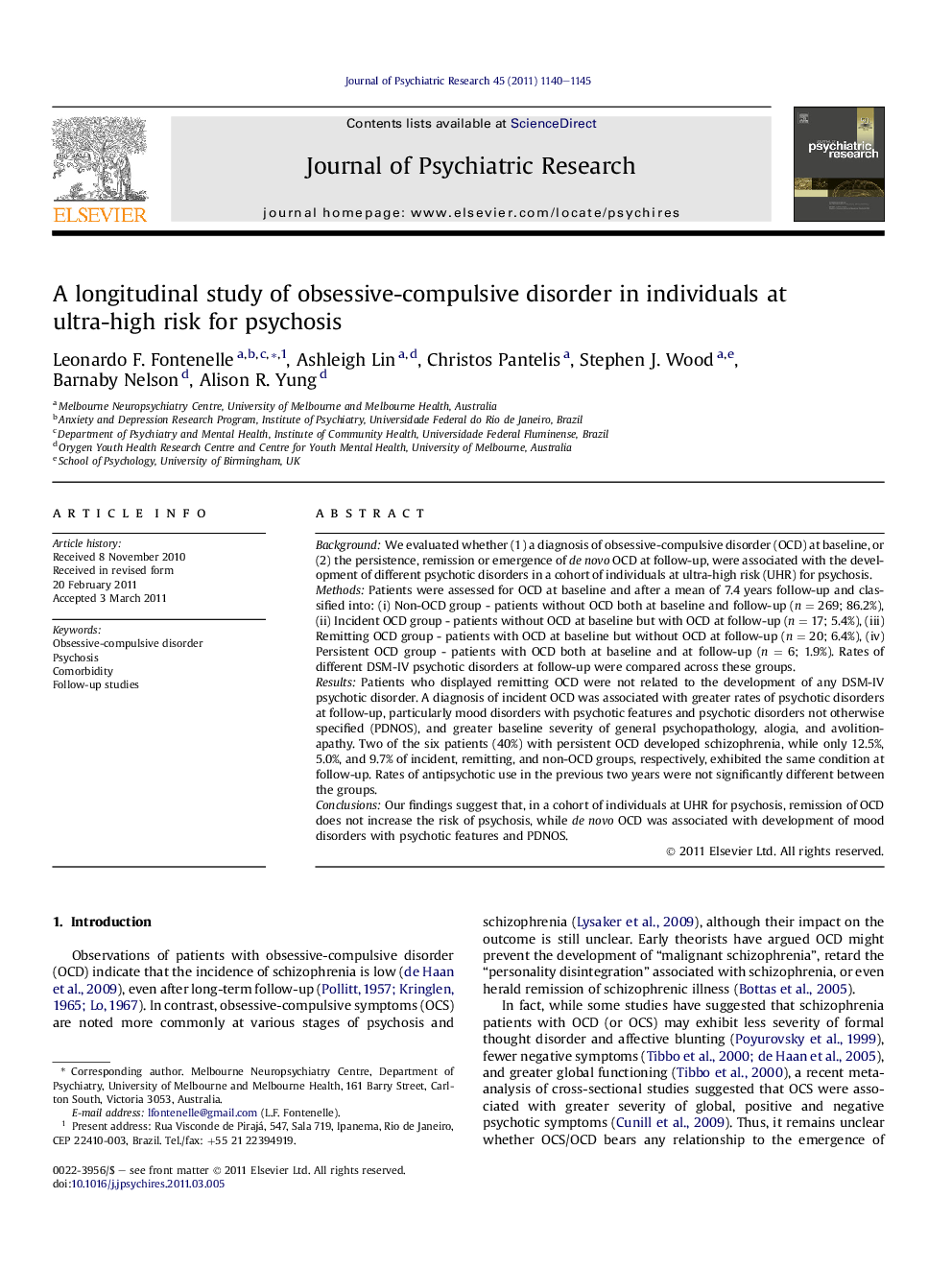| کد مقاله | کد نشریه | سال انتشار | مقاله انگلیسی | نسخه تمام متن |
|---|---|---|---|---|
| 327734 | 542970 | 2011 | 6 صفحه PDF | دانلود رایگان |

BackgroundWe evaluated whether (1) a diagnosis of obsessive-compulsive disorder (OCD) at baseline, or (2) the persistence, remission or emergence of de novo OCD at follow-up, were associated with the development of different psychotic disorders in a cohort of individuals at ultra-high risk (UHR) for psychosis.MethodsPatients were assessed for OCD at baseline and after a mean of 7.4 years follow-up and classified into: (i) Non-OCD group - patients without OCD both at baseline and follow-up (n = 269; 86.2%), (ii) Incident OCD group - patients without OCD at baseline but with OCD at follow-up (n = 17; 5.4%), (iii) Remitting OCD group - patients with OCD at baseline but without OCD at follow-up (n = 20; 6.4%), (iv) Persistent OCD group - patients with OCD both at baseline and at follow-up (n = 6; 1.9%). Rates of different DSM-IV psychotic disorders at follow-up were compared across these groups.ResultsPatients who displayed remitting OCD were not related to the development of any DSM-IV psychotic disorder. A diagnosis of incident OCD was associated with greater rates of psychotic disorders at follow-up, particularly mood disorders with psychotic features and psychotic disorders not otherwise specified (PDNOS), and greater baseline severity of general psychopathology, alogia, and avolition-apathy. Two of the six patients (40%) with persistent OCD developed schizophrenia, while only 12.5%, 5.0%, and 9.7% of incident, remitting, and non-OCD groups, respectively, exhibited the same condition at follow-up. Rates of antipsychotic use in the previous two years were not significantly different between the groups.ConclusionsOur findings suggest that, in a cohort of individuals at UHR for psychosis, remission of OCD does not increase the risk of psychosis, while de novo OCD was associated with development of mood disorders with psychotic features and PDNOS.
Journal: Journal of Psychiatric Research - Volume 45, Issue 9, September 2011, Pages 1140–1145